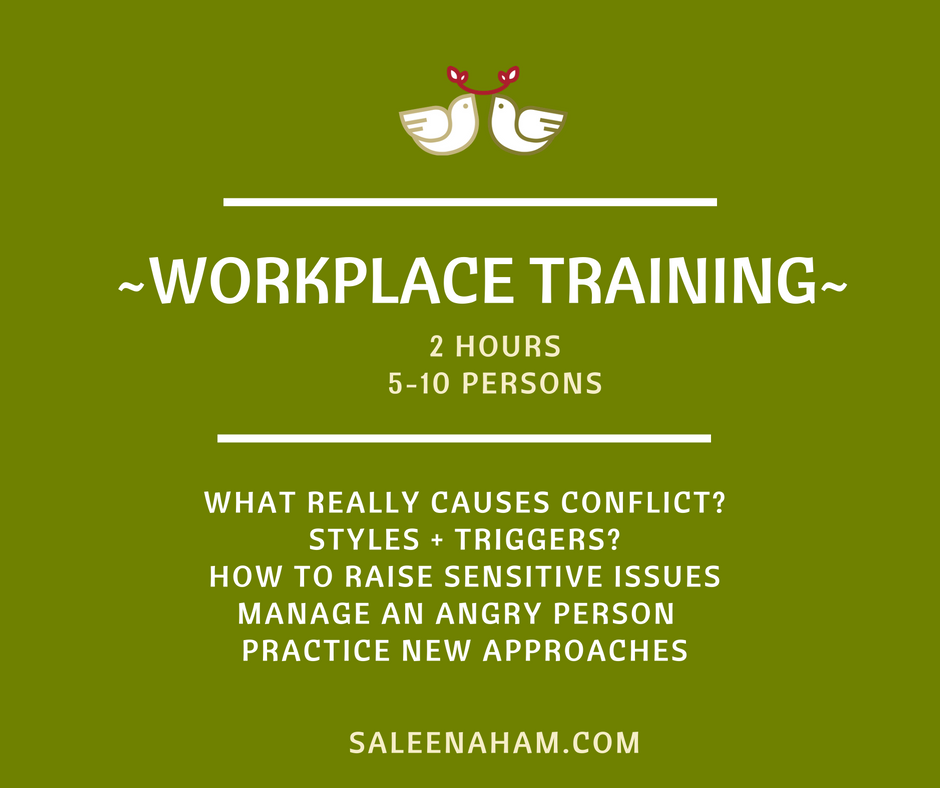A couple of work colleagues do not get on and in every meeting it shows. No one enjoys it and it isn’t particularly constructive. Conflict in meetings is common.
Knowing how to contribute to a tense meeting is a great communication skill to have even if you are not a ‘facilitator’. It is very helpful if there is a clear agenda for the meeting and a competent person to lead the meeting process…but if there isn’t, don’t think you can’t help out.
Conflict is a part of life but if it isn’t managed in a constructive direction, it can be unhelpful, time-wasting and damaging.
Professional facilitators will manage conflict situations routinely as a valid and important part of dialogue. But actually, anyone can effectively influence the tone and direction of group discussions with a little thought.
Firstly – recognise that a negative or escalating behaviour reflects that there is genuine concern or agenda for that person or persons and show respect for that.
Modelling good behaviour is a powerful influence in itself.
Find the positive in the negative comments and then explore it. Exploration means that you ask for accountability for the issue and show genuine interest in understanding the concern.
Here are some examples of un-constructive comments that with firm, empathetic tone, can be turned into valuable contributions:
Generalisations; Sweeping Statements
“No one gives a damn about any of this.”
Something is really concerning you, (Name). How do you see things?
Statements as Questions
“Wouldn’t you agree it’s just completely irresponsible to act on that without consultation?”
You’re concerned about the engagement process. What would be a good way to deal with this?
Speaking for Others
“I happen to know that a lot of other people in the group feel the same way I do about this.”
You obviously feel strongly about this. What matters to you?
Victim
“I get depressed when I see what they’re doing. I’ve lost all hope for change.”
You’re very concerned about the direction things are taking. What do you think could make a difference? Where are there opportunities?
Blaming
“They always do (this) and they are responsible entirely for (that). It’s their fault completely.”
You are pretty unhappy with what’s happening. How is that directly affecting you? Do they know about this situation? What might improve things?
No matter what happens, every person in the room has the right to respect for their views and an obligation to express them respectfully. :>)
Saleena Ham








